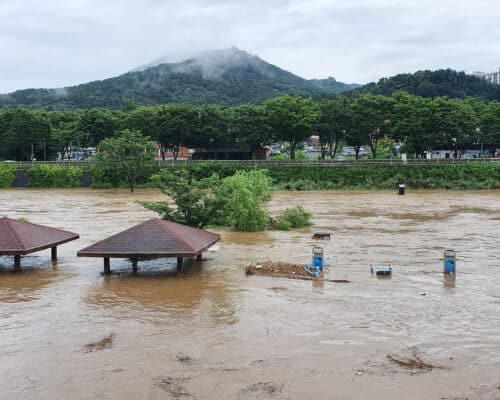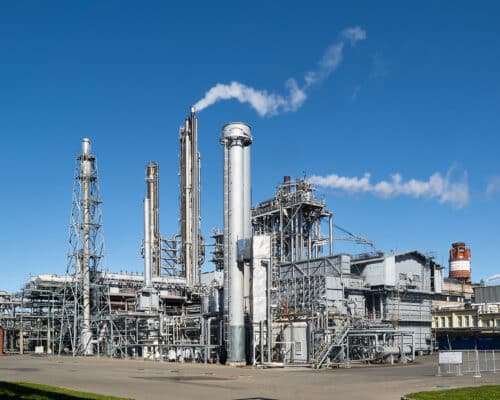Fossil Fuel

The LNG Plans For Samsung’s New Megaproject Threaten Its Reputation
Today, Samsung is far from being a climate leader - neither in terms of current progress nor when it comes to pledges. However, the company has all the means to become one. Advocating for more renewables and less fossil fuels in South Korea's climate policies is a crucial first step.

LNG Expansion in the Philippines Harms Communities and Coral – Podcast
Energy Insights spoke with Liza Osorio about the Philippines and San Miguel Corporations' LNG expansion impacts on communities and coral reefs.
Japan’s Carbon Capture Investments in Australia Pose Significant Financial Risk
Japan continues to fund carbon capture projects in Australia despite lacklustre results and high costs resulting in mounting financial losses.

Ammonia Fuel Engine – Revolutionising Transportation
Ammonia engines combust ammonia using a similar process to standard internal combustion engines. However, ammonia's properties make it inefficient for several common use cases and give rise to dual-fuel engines. Both options are driving investment and innovation in the technology.

Climate Change in South Korea: Floods, Heat and Looking Away
South Korea's strategy to address climate change's impacts is reactive, not proactive, while its newly adopted policies and upcoming plans continue to undermine renewables.

Blue Ammonia Fuel: Usage, Projects and Future
Blue ammonia fuel uses natural gas as a feedstock for hydrogen production and applies carbon, capture and storage (CCS) to reduce overall emissions. However, the viability of CCS and its role in slowing the low-carbon energy transition are concerning. Renewable energy-reliant alternatives are available and should be the focus of decarbonisation efforts.

Heatwaves in 2023: A Glimpse Into the Future of Climate Change
The G20 Summit, the UN Climate Ambition Summit and COP28 are just some of the opportunities to seal the fate of fossil fuels.

Green Ammonia Fuel – The Fuel of the Future?
Green ammonia uses renewable energy to power electrolysis and produces ammonia without carbon emissions. The technology is promising, yet it is still in its early stages. Ongoing investment by the public and private sectors can make it commercially viable.

The G20 Energy Transitions Working Group: A Wasted Opportunity For Progress
The G20 ETWG became the latest conference that failed to produce meaningful fossil fuel phaseout progress.

Shell Pushes LNG Agenda and Backtracks on Sustainability
Oil and gas major Shell has decided to place profits over sustainability, backpedalling from previous commitments to rein in its carbon emissions. Governments must find ways to regulate these fossil fuel-producing giants.

Are Ammonia Fuel Cells the Missing Link For Decarbonisation?
Ammonia fuel cell research is growing as the world searches for viable fossil fuel alternatives. Fuel cells are showing a potential to fill this gap, yet commercial viability remains to be determined.

How Solving Energy Poverty Will Boost Health and Climate Goals
We speak with Sugandha Srivastav of Oxford University about energy poverty, access and developmental economics.
Most Popular
Categories
-
10
-
35
-
126
-
4
-
17
-
46
-
52
-
11
-
10
-
15
-
24
-
6
-
1
-
5
-
6
-
284
-
200
-
17
-
24
-
1
-
1
-
23
-
41
-
44
-
88
-
18
-
86
-
41
-
17
-
11
-
43
-
54
-
86
-
299
-
22
-
44
-
36
-
11
-
42
-
36

